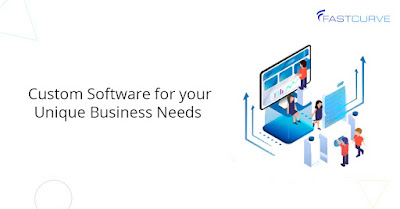How Zero-Trust Security Models Work in Cloud Computing
Maintaining and managing the security patches and protecting your software from data breaches is crucial for business. The zero trust security model is a solution for businesses that want to enhance their software’s security and keep their application up to date.
This security model plays a crucial role in defining the true potential of the AWS cloud world. If we talk about the traditional security framework, this model differs from it. Zero trust is a security model that works on the “no trust and always verify first” model. This model can be termed one of the most crucial as it protects your software from cyber breaches and threats. In this model, every user must be authenticated and authorized before accessing the resources or the software.
In this dedicated article, we will learn more about the zero trust security model, the benefits of deploying it for the cloud, and its key features.
What is the zero trust security model?
As discussed in the article, the zero trust security model works on the never trust, always verify principle. This makes it unique from the traditional security methods. IT services play a crucial part in this dedicated model; all the users, devices, and applications must be authenticated before accessing any of the company's resources. Zero trust providers use this model to enhance their security by continuously identifying people's identities and decreasing the risk of unauthorized access and data breaches.
Key principles of zero trust for cloud
Some of the key zero-trust principles are mentioned below:
1. Verify explicitly: Every access request is authenticated and authorized using all the data points available, from the identity of the user to the health of the device and its location.
2. Minimum rights: Zero trust security provides users with the least access necessary to complete their assigned task, thus reducing the impact a compromised account could have.
3. Assume breach: Operations are conducted by considering the possibility of breaching security and making necessary developments in segmenting access and monitoring security threats deeply for detection and response.
Deploying zero trust security for the cloud
Deploying Zero Trust Security for cloud environments is key to reaping several zero trust benefits and significantly strengthens a company’s cybersecurity posture. Here are a few of the significant benefits:
1. Heightened security: First, this model's stringent policy could be summarized as "never trust, always verify." It examines every request for access regardless of a user's location. This does not allow any unauthorized access, sparing corporate information breaches even if an attacker compromises a user's credentials.
2. Downloading the surface: Does the Zero Trust strategy bind the lowest prime privilege to give users access to only the elements necessary to perform that particular function? Attack areas are minimized. They are cut down into smaller parts. It ensures that they are too complex for the attacker to come across.
3. Openness towards remote work: The Zero Trust framework enables the security of cloud access from any device in different locations as part of a comprehensive new work model. It is a road-train through which employees can securely work without compromising organizational security.
4. Ongoing monitoring and analytics: Cloud zero trust emphasizes the constant monitoring of user behavior and instant diagnosis of a device's health. Cloud contact center enables the organization to discover anomalies in real time and respond to possible threats, including reducing escalation risks.
5. Better compliance: Most industries shape their procedures around the most rigorous legal provisions on data protection. By applying the Zero trust model in cloud computing, an organization can ensure compliance with the standard quality by installing access control and monitoring mechanisms to protect data.
6. Resilience against insider threats: The Zero Trust approach considers all users' potential threats. This will allow an organization to focus on identifying and mitigating significant internal risks by maximizing continuous assessment and validation of anomalies.
Implementing a zero trust security model in the cloud environment is essential for all businesses that would like to secure their trust model cybersecurity posture in that increasingly complex threat landscape. AWS cloud consulting services can significantly reduce the probability of unauthorized access and data leaks by applying tools such as perpetual validation, least privilege access, and continuous monitoring.
It secures critical data and caters to remote work and AWS cloud services while keeping up with the demands placed by these environments. Zero trust security further aids in maintaining compliance with regulatory requirements and preventing insider threats.
Fastcurve is a global IT services and consultancy company specializing in software services, products, and consultancy. Focusing on delivering trusted and accelerated outcomes, Fastcurve operates in multiple locations, helping organizations enhance their digital capabilities through innovative IT solutions. Contact them for the best AWS cloud and mobile app development services and make your business stand out from the marketplace crowd.



Comments
Post a Comment